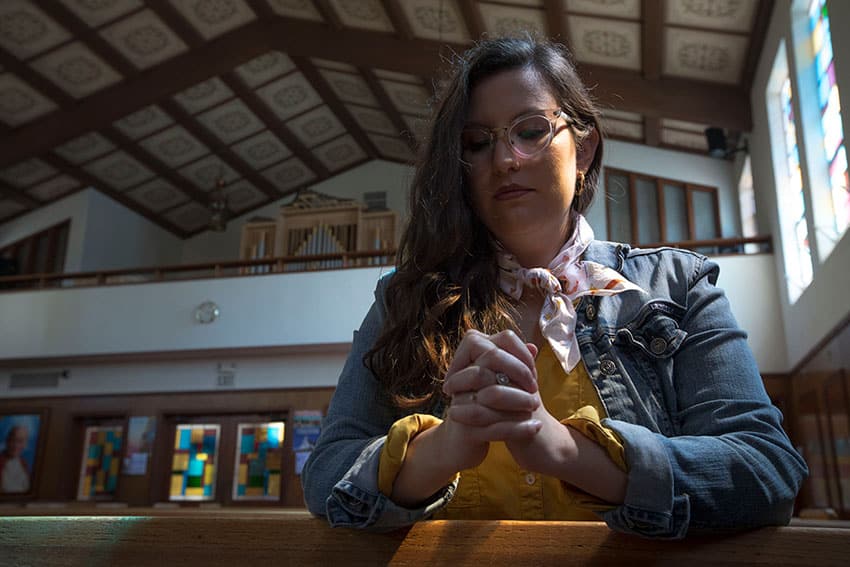
For many years I have been saying the “prayer before a crucifix” to gain a plenary indulgence, observing the usual conditions, but someone recently told me that this indulgence is no longer recognised by the church. Is this true?
First, for the benefit of those not familiar with indulgences, the most recent manual of indulgences, given in 1999 by the Holy See, gives the following norms:
“An indulgence is a remission before God of the temporal punishment for sins, whose guilt is forgiven, which a properly disposed member of the Christian faithful obtains under certain and clearly defined conditions through the intervention of the Church, which, as the minister of Redemption, dispenses and applies authoritatively the treasury of the expiatory works of Christ and the saints.
“An indulgence is partial or plenary according to whether it removes either part or all of the temporal punishment due to sin.
“The faithful can obtain partial or plenary indulgences for themselves, or they can apply them to the dead by way of suffrage.
“The faithful who perform with at least inward contrition an action to which a partial indulgence is attached obtain, in addition to the remission of temporal punishment acquired by the action itself, an equal remission of punishment through the intervention of the Church” (nn. 1-4).
Returning to your question, the “prayer before a crucifix” still has indulgences attached to it, but the conditions for gaining a plenary indulgence may not be what you think. According to the new manual, a plenary indulgence may be gained for saying this prayer in front of a crucifix after Communion only on the Fridays of Lent.
However, a partial indulgence can be gained for saying it on any day, or for saying any other prayer of thanksgiving after Communion, such as the “Anima Christi,” or for making a spiritual communion (cf. n. 8).
In order to gain an indulgence, the person must be baptised, not excommunicated, and must be in the state of grace at least at the completion of the prescribed works.
Also, one must have at least the general intention of gaining an indulgence and must carry out the prescribed works at the stated time and in due fashion, according to the sense of the grant (cf. n. 17).
As regards the intention, it is sufficient to have a general intention of gaining all the indulgences one can, since there may be many acts to which an indulgence is attached of which a person may not be aware.
Also, a person may gain only one plenary indulgence a day, but multiple partial indulgences (cf. n. 18).
To gain a plenary indulgence, in addition to excluding all attachment to sin, even venial sin, it is necessary to fulfill the following three conditions: sacramental confession, Eucharistic Communion and prayer for the intentions of the pope.
A single confession suffices for gaining multiple plenary indulgences, but Holy Communion must be received and prayer for the intentions of the Holy Father must be recited for the gaining of each plenary indulgence.
The three conditions may be fulfilled several days before or after the performance of the prescribed work. Nonetheless, it is fitting that Communion be received and prayer for the intentions of the Holy Father be said on the same day the work is performed.
If the full disposition is lacking, or if the work and the three prescribed conditions are not fulfilled completely, the indulgence will be only partial.
To fulfil the condition of praying for the intentions of the pope, it is sufficient to recite an Our Father and a Hail Mary, or any other prayer, for this intention (cf. n. 20).
It is good to be aware that one can obtain a plenary indulgence on any day by praying before the Blessed Sacrament for at least a half hour, making the way of the cross, reciting the rosary in a church or when several people are gathered together for a good purpose, or by the devout reading or listening to the sacred scriptures for at least a half hour (cf. Intro. n. 7).
Also, one can gain a partial indulgence by such acts as raising one’s heart to God in prayer while carrying out one’s duties or bearing the hardships of life, giving oneself or one’s goods compassionately to the service of others, voluntarily abstaining from something that is licit and pleasing, and by voluntarily giving explicit witness to one’s faith before others (cf. Grants 1-4).
